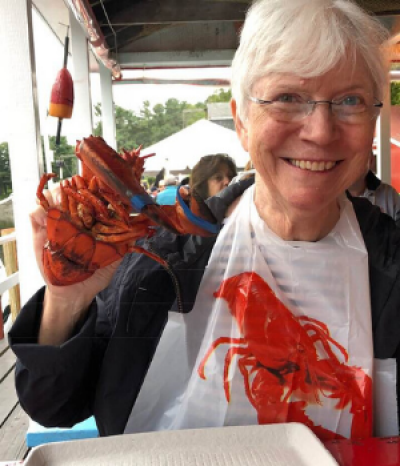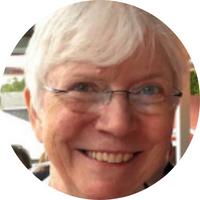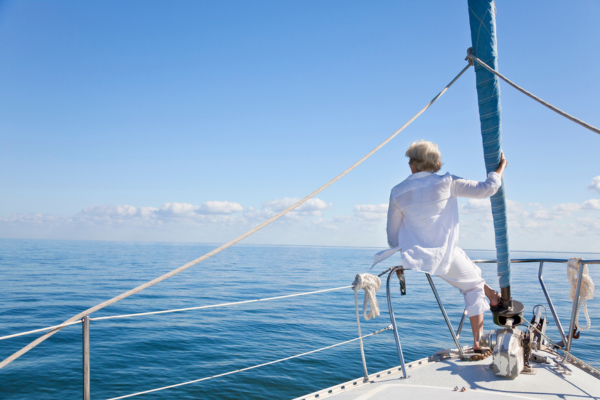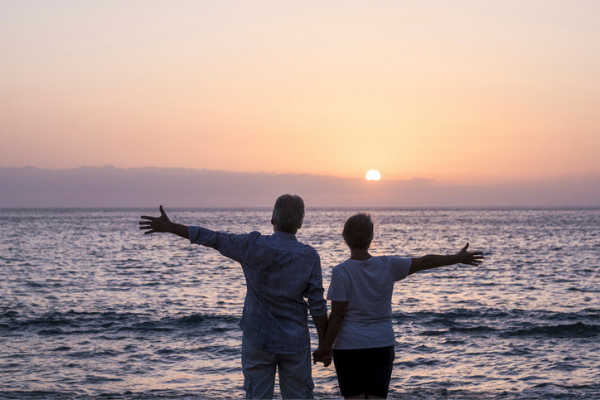
Did you choose retirement? Or was it chosen for you?
I chose. I started thinking seriously about it four years before I stepped out. I wanted to go out on my own terms, and I made sure my retirement portfolio was in the shape it needed to be in. I also wanted to ”go out on a high” in terms of the projects I was working on.
How was the transition from the working world to retirement?
Piece of cake. The first two weeks felt like vacation, and then in week 3 I realized, this is it!
What do you miss most about your old job?
Nothing! (Laughing as I type this.) Don’t misunderstand: I loved what I did. Academe was the perfect place for me with the combination of research and teaching and, in my final decade, the chance to join a writing team to produce two textbooks. Of course I miss colleagues, but that’s been replaced by longer, more leisurely lunches with those who also have more time now.
Looking back, what do you wish you knew about retirement before you retired?
Nothing major. I had watched lots of people do it and learned a lot from them. Be observant.
So far, what has surprised you most about retirement?
I feel I was pretty well prepared. A piece of wisdom I heard early on was that it should be a retirement FOR, not a retirement FROM, so I made sure I had lots of things I was retiring FOR.
What’s your best advice for someone in their 20s/30s?
Here’s a quick story. I served on the board of trustees for the ACS Member Insurance Program. Early in my time on the board we had a presentation that touched on issues involving retirement. The speaker showed some graphs and pie charts that described the effect of putting a little money early into retirement programs vs. more money later. The difference was stunning. When I got back to my office, I changed my contribution to my fund to the max allowable and started a Supplemental Retirement Account. It was the best thing I did. I realize we all need to live now, too, and many can’t do what I did to the extent I did, but start early and keep building your fund, even if the monthly amount is small. Otherwise – love what you do, be kind, work hard, and enjoy what life has to offer. That holds for all your decades.
What is your favorite part of retired life?
Sunday night is just another night! Plus the wardrobe is easier: turtlenecks, hoodies, and jeans when it’s cold; khakis and tee-shirts when it’s warm. Every day – not just weekends. On a more serious note, I thoroughly enjoy having the time to pursue things to which I had to give short shrift when I was working because they didn’t feed research or teaching. I love being able to schedule daily activities as well as trips without being constrained by a calendar at work.
What’s the biggest challenge you have confronted at this point in your retirement?
The same thing it was when I was working full time -- getting everything done that I want to do. The only change is that what I want to do is different. The tyranny of the work week, the classroom, the tight schedules no longer exist as a framework about which you organize the minutes of your days. You learn to organize differently. As a friend of mine said, ”I have nothing to do and I still can’t get it done.” That’s retirement.
How do you stay connected to the chemistry enterprise as a retiree?
I still go to meetings, both in person and, since the pandemic, online. The most recent online ACS meeting was marvelous; I could hear a wider range of presentations than usual because I didn’t have to factor in travel between hotels! I tend to read both more widely and more generally now. I’m a member of an international science group that meets in a virtual world and hears talks regularly. The range of expertise among the participants is huge – astrophysics, engineering, biology, sociology, anthropology, archaeology – and the willingness of the participants to share is heartening. Because of the people in this group, I’m finally getting a handle on CRISPR cas9 technology and therapeutics and also learning about areas totally new to me, from fossils in the Messel Pit in Germany (alligators in Germany? Who knew?) to the James Webb Space Telescope (What’s a Lagrange point?) and how AI is changing our world already and what the near future may hold (scary and fascinating on both counts).
What’s a travel destination you can’t wait to get back to?
So many destinations, so little time! New York City (it’s close and I get there a lot), Moosehead Lake, Kyoto, Berlin, London, Paris, the Highlands and Islands of Scotland, Santa Fe, and I’m sure the next new place I go will be on the list, too, as soon as I come back. I love to travel and realize how lucky I have been to do it.
What do you like most about where you are living in retirement? What’s one thing you wish you could change about where you live?
I live in a small residential city that that boasts excellent opportunities for participating in cultural events as well as seeing local concerts, plays, and AAA baseball. Another huge plus is proximity to NYC, with its world-class opera, theater, concerts, plays, museums, art -- everything one associates with the best in the world. If I could change anything – no winter (although I can’t complain about this year’s), and better public transportation both within the area and to major cities.
What guidance do you have for people who are getting ready to retire?
Do it and don’t look back. Remember – you are now paying yourself to do whatever you want to do, so do it. Lines in a poem in a recent issue of The New Yorker caught my eye:
I am catching up to the day
accepting
that the Sun cares
and does not care,
that with or without me
it will spin and burn.
That I should
spin and burn
too.
Keep spinning and burning.

A recipient of the Christian R. and Mary F. Lindback Foundation Award for distinguished teaching, Foster sought ways to improve education in chemistry at the undergraduate and graduate levels. At Lehigh, she was among the first to embrace emerging technologies to enhance teaching. She participated in the Clipper Project, an early foray into online learning in which she converted the introductory chemistry course into a modular class using text, audio and video materials, and embedded assessments, all of which could be used asynchronously over the web by students on or off campus.
Outside the classroom, she was active in the ACS as a councilor and a member of the board of the ACS Insurance Trust. As a participant in the ACS Speakers’ Service, she frequently spoke at local sections of the ACS across the country on popular topics like the chemistry in Star Trek and science in the mystery novels of Dorothy L. Sayers.
It was her greatest pleasure to collaborate with colleagues from Northeastern University and Miami University of Ohio to write Chemistry: An Atoms-Focused Approach and Chemistry: The Science in Context, two introductory chemistry texts published by W. W. Norton & Company and currently in use in colleges and universities nationwide.
This article has been edited for length and clarity. The opinions expressed in this article are the author's own and do not necessarily reflect the view of their employer or the American Chemical Society.










